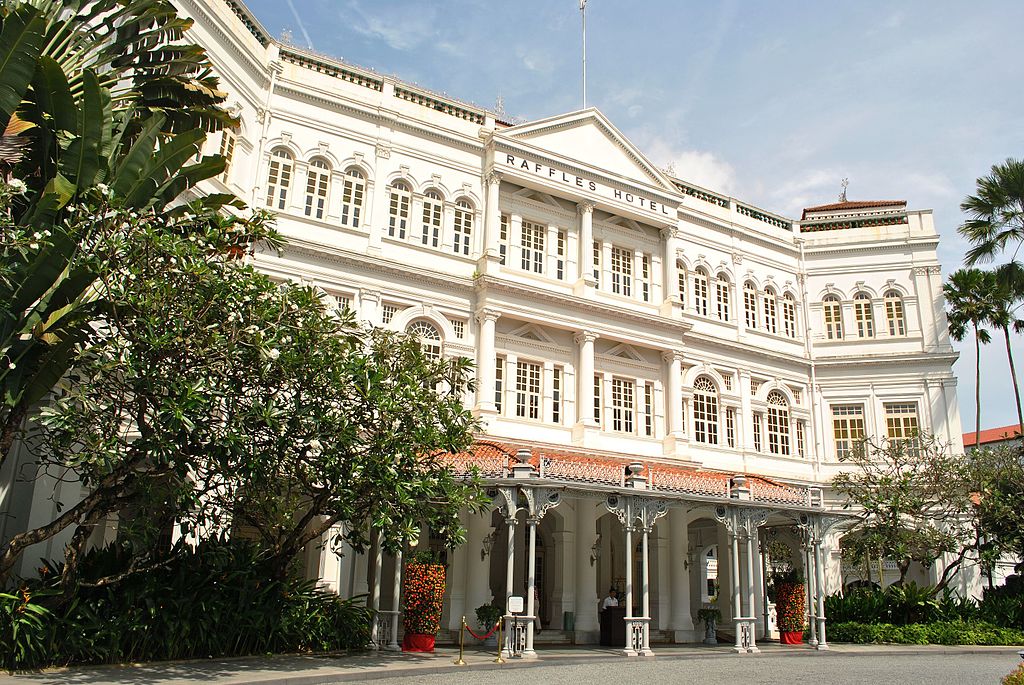Skift Take
The global pandemic still impacted Accor's recent corporate restructuring, whether the company sees it that way or not.
A major corporate restructuring at Accor sparked permanent layoffs of 25 percent of corporate staff, according to the company’s CEO Sebastien Bazin speaking Tuesday during Skift Global Forum.
But the overhaul has nothing to do with coronavirus, he asserted during an interview with Skift Editor-at-Large Raini Hamdi.
“It has nothing to do with Covid. It has nothing to do with cost efficiency,” Bazin said. “The only way to move forward was to decide to cut down one layer of decision-making, which was a tough decision.”
Accor, owner of brands like Fairmont and Raffles, is in the midst of a corporate overhaul that draws some power away from central headquarters in Paris and places more decision-making in the hands of eight geographic hubs around the world.
Even if the corporate restructuring has nothing to do with the pandemic, Accor has still taken part in cost-savings plans during the uncertain travel environment. A $235 million savings plan included eliminating 1,000 jobs and potential sale of Accor’s $430 million Paris headquarters.
The 25 percent layoff figure touted Tuesday is higher than those seen recently at Hilton and Marriott, which laid off roughly 22 percent and 17 percent of their corporate staff, respectively, due to the pandemic’s impact on business.
“It’s very difficult for me because I’ve been saying through Covid that I want everybody back,” Bazin said. “But we have to admit we just can’t afford it anymore.”
Accor is looking for ways to keep impacted employees in its system for up to two years while assisting and training them for alternative roles in the hospitality industry.
The company’s broader structural shift is a final part of a five-year plan that included shifting to an asset-light model, both with real estate as well as the organization of the company, Bazin said.
But the chief executive took criticism amid the restructuring for how few women were in hub leadership roles. Women hold only two of the eight leadership positions.
While he noted he has successfully led initiatives to achieve pay parity at the company as well as equal representation at the hotel general manager level, Bazin sees work to be done on his executive team — and takes full responsibility.
“I have been miserably failing at the executive committee level, which is only 15 percent. My fault,” he said. “I can’t sacrifice someone because of his gender. Give me another five years. I will get there.”
The move for more geographic power and decision-making comes months after he noted earlier in the pandemic the need to be more agile at the owner and local level rather than continuing top-down management strategies.
But the previously announced sale exploration of the Paris headquarters may not be as vital to Accor’s survival as initially reported.
“We don’t need any cash. Even though it’s been tough over the last few months, Accor has 4 billion euros of immediately available cash,” Bazin said. “I’m not [having] a fire sale. I’m not under any pressure.”
Zeroing in On Growth Sectors
Accor’s restructuring also hinted at where the company sees future growth opportunities. The ultra-luxury and lifestyle segments will have independent divisions within the company, as Bazin noted each as “high-potential segments” in a memo to employees.
The company has moved forward with global expansions of its Raffles brand, even during the pandemic downturn in travel. The luxury sector in one of Accor’s key markets, China, has even outperformed lower-tier market segments in terms of occupancy in recent weeks, according to STR.
The ultra-luxury division will largely center around Accor’s Raffles and Orient Express brands.
“It is the crème de la crème,” Bazin said. “It does require a different management team and different focus.”
Accor’s lifestyle brands like Delano and SLS also show growth potential. But Bazin noted the division’s growth potential often includes partnerships — Delano and SLS are part of SBE, which Accor bought a 50 percent, $319 million stake of in 2018 — that require more attention.
“There are a lot of outside partners knocking on Accor’s doors trying to partner with their own similar brands,” Bazin said. “But they would only do so if they’re welcomed into dedicated business unit rather than under the large Accor umbrella.”
It isn’t just luxury and lifestyle fueling growth out of the pandemic.
Twelve brands represent nearly 90 percent of Accor’s profits, Bazin said. Those 12 profit engines include economy and mid-scale brands like Ibis and Novotel as well as the high-end Fairmont. The company is responsible for nearly 40 brands in total.
But that revenue concentration shouldn’t spark fear of brand retirement.
“Let’s not eliminate any brands,” Bazin said. “All those brands have meaning for your customer base.”
Merger Mayhem? Maybe Not
Bazin’s appearance came weeks after reports once again heated up about Accor’s merger potential with London-based IHG. The two hotel companies have been paired as ideal merger candidates as far back as 2014, but those talks have typically involved IHG as the buyer and Accor as the target.
Neither Bazin, nor IHG CEO Keith Barr in a Skift Global Forum appearance earlier Tuesday, commented directly on the merger likelihood. But both noticed there could be more mergers and acquisitions down the line, likely at the regional level.
“Consolidation might happen one day, but this is not Accor’s priority,” Bazin said. “[More major brand consolidation in the near-term] is unlikely because many of us have to preserve capital. It’s a time to be prudent.”
Instead, Accor is focusing on growth through signing smaller, independent brands to one of its flags — known as a brand conversion — or appealing to owners with regional brand flags. Accor won out this summer with its Ibis brand in a conversion courtship of major companies with an ownership group of the UK-based budget chain Travelodge.
“You’ll see more built on local partnerships and mergers and acquisitions because of the fragility of many local and regional operators, where some of us can open our arms,” Bazin said. “You might see those coming faster because of today’s economy.”
Have a confidential tip for Skift? Get in touch
Tags: accor, coronavirus, coronavirus recovery, sgf2020, skift global forum
Photo credit: Accor CEO Sebastien Bazin says a recent corporate overhaul has less to do with the pandemic and more to do with the final stage of a five-year business plan. Elisa.rolle / Wikimedia


